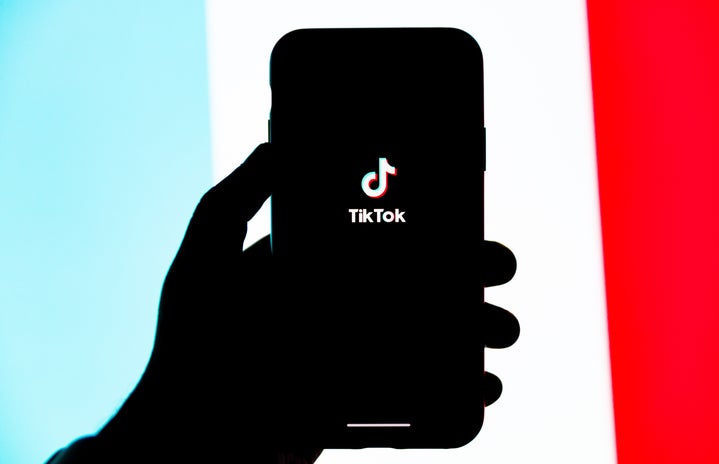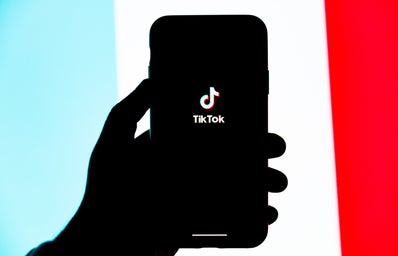TikTok’s influence has truly exploded over the last couple of years. When ByteDance Inc. bought the platform Musical.ly in 2017, TikTok would go from a mostly Chinese-based app to a global sensation.
TikTok hit at an almost perfect time. Social media platforms like Facebook, Instagram and Snapchat had been around for a while, and the U.S. was in need of a new, fun social media app for pre-teens and teenagers. So, when TikTok hit, it hit hard.
Toady we see the societal impacts of TikTok through its huge user base, its influence on clothing and music trends and its influx of celebrities.
Without TikTok, would Bo Burnham’s songs have grown to the degree they did? Would Addison Rae be in the movie, “He’s All That”? Would almost every teenager know how to do the Renegade dance?
This cultural reliance and widespread adoration for TikTok lowers our defenses to the loved app. And, as we turn a blind eye to the dangers of the app, we allow it to take advantage of us.
While TikTok has contributed to huge additions to internet culture, it is necessary to look at the implications of this influence.
Why You Should Care About Your Privacy
First, over the last couple of years, cybersecurity experts and government officials have been very vocal about the privacy concerns of TikTok.
When discussing the privacy concerns of TikTok, many respond with something like “So what? They already have my information already” or “Why should I care? What are they really going to do with my information?” But, what people do not realize is that your information goes beyond just your name, phone number and geographical location.
VPN Overview shares that TikTok can have access to your “personally identifiable information, key stroke patterns, location information based on SIM card and/or IP address, app activity, browser and search history and biometric information (face and voice print).” TikTok then stores this data, making it vulnerable for data harvesting or data leaks.
Personally, I do not like the idea of anyone having sensitive information like that, especially when the people who have this information are more than willing to sell it to the highest bidder.
On the other hand, Norton shares that TikTok has access to your Apple iOS clipboard data. This means that if you copy and paste your passwords via clipboard or other apps, TikTok could have this data. This becomes more imperative as Mac users and people with iCloud expand their risk.
But, the concerns certainly don’t stop at privacy. Many people worry about the mental health of the teenagers consuming this information.
Mental Health!!!
TikTok is not making all kids swing to the extreme of depression, but it still creates an environment that can easily make kids feel bad.
A year ago, I deleted TikTok. And I remember that as soon as I deleted it off my phone, I felt a weight lifted off of me.
TikTok’s algorithms create patterns that are in tune with what we are feeling. Documentaries like “the Social Dilemma” visualize how social media algorithms can calculate your moods based on your viewing patterns. Once they get the pattern down, they can push content to you.
These algorithms can push you towards something as insignificant as certain advertisements for possible future purchases or something as extreme as targeted political ads that encourage political polarization.
At the end of the day, TikTok knows what you are feeling. And, with algorithms, it is easy to feed into these emotions.
Nobody likes FOMO, but the more FOMO you feel, the more you sit on the app to feel better. This creates a cycle of dependency where people rely on “emotion-focused coping to alleviate stress rather than problem-focused coping,” according Sophia Petrillo from Brown’s School of Public Health.
Petrillo goes on to write how TikTok’s qualities add to the addictive factors of the app.
The short videos make people get stuck in cycles of scrolling. The like button acts as positive reinforcement. They change the layout and design periodically to make sure users spend more time on the app. And the artificial intelligence made from the “For You” page hooks users and keeps them on the app longer.
TikTok is made to make you addicted. And, like any other addiction, there is an emotional dependency created that can only harm you.
NBC Boston shares that “Government officials and Child-safety advocates maintain that TikTok’s computer algorithms pushing video content to users can promote eating disorders and even self-harm and suicide to young viewers.”
While using any social media, it is important to keep the input of experts in mind. When people across the country and around the world are clearly communicating privacy concerns and concerns for mental health, it should be noted and considered.
For me, I deleted TikTok. But, it’s okay if that choice is not for you. There are still some measures you can take to ensure that you are a bit safer while on the app.
First, Norton suggests that you always make sure to update the app. Sometimes the app can catch and correct privacy concerns or vulnerabilities.
Next, make sure to go into your settings and check what data the app is collecting. Make sure to not share your contacts, location, etc.
Lastly, make sure your account is private. Although information like your name, email, phone number, age and even appearance may seen insignificant, it is still information that anyone online can access and use against you.
The United States technically has no online privacy laws, so it is essential that you are holding yourself accountable for your privacy.
Lastly, make sure you are avoiding content that will simply not make you feel good. Do not go on TikTok when you are feeling sad! And be sure to use the “not interested” button on TikTok when you see content you don’t like.
In a world of social media, make sure that you are being smart and protecting yourself.




